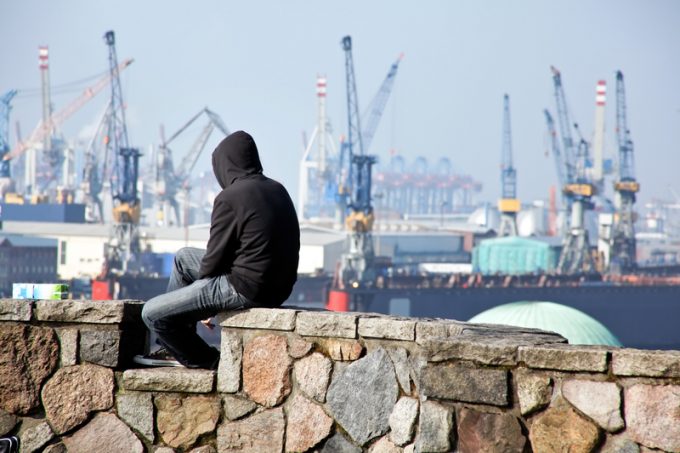Maritime Union of Australia voices support for US dockworkers 'at war'
National secretary of the Maritime Union of Australia (MUA) Paddy Crumlin, who is also international ...
UPS: MULTI-MILLION PENALTY FOR UNFAIR EARNINGS DISCLOSUREWTC: PUNISHEDVW: UNDER PRESSUREKNIN: APAC LEADERSHIP WATCHZIM: TAKING PROFITPEP: MINOR HOLDINGS CONSOLIDATIONDHL: GREEN DEALBA: WIND OF CHANGEMAERSK: BULLISH CALLXPO: HEDGE FUNDS ENGINEF: CHOPPING BOARDWTC: NEW RECORDZIM: BALANCE SHEET IN CHECKZIM: SURGING
UPS: MULTI-MILLION PENALTY FOR UNFAIR EARNINGS DISCLOSUREWTC: PUNISHEDVW: UNDER PRESSUREKNIN: APAC LEADERSHIP WATCHZIM: TAKING PROFITPEP: MINOR HOLDINGS CONSOLIDATIONDHL: GREEN DEALBA: WIND OF CHANGEMAERSK: BULLISH CALLXPO: HEDGE FUNDS ENGINEF: CHOPPING BOARDWTC: NEW RECORDZIM: BALANCE SHEET IN CHECKZIM: SURGING

Strike action in the late shifts of Thursday evening crippled the Hamburg container terminals at HHLA and Eurogate, adding to the congestion crisis impacting North European ports.
The German united services trade union Verdi called out its 12,000 dockworker members at Hamburg, Bremen and Lower Saxony in the first of what could be several “warning strikes”, designed to increase the pressure on its ongoing wage dispute with the employers, the Central Association of German Seaport Companies (ZDS).
ZDS negotiator Ulrike Riedel said that the industrial action was “completely disproportionate” and did not do justice to the current negotiations.
“We are in the middle of an absolutely exceptional situation. Global supply chains are severely disrupted. On the one hand, a large wave of delayed ships is approaching us, on the other hand, there are major bottlenecks in rail freight traffic. Calling for warning strikes now is absolutely irresponsible,” said Ms Riedel.
The ZDS negotiators have offered a wage increase of 7% over two years, but Verdi is demanding above inflation increases of between 12% and 14%.
The union negotiators said that the offer from the employers was “completely inadequate”.
“As part of the critical infrastructure, employees have worked continuously in recent years, pushed the limits and, as key workers of the supply chains, have kept the shop running with their hard work. They deserve recognition and their fair share,” said lead Verdi negotiator, Maya Schwiegershausen-Gueth.
Ahead of the next round of negotiations today, the trade union said that it “now expected a significantly better offer” from the employers.
A spokesperson for port logistics company HHLA told the Hamburg press that the strikes were coming at “a rather untimely time”.
Indeed, before the stoppage yesterday, Hamburg’s container quays were recording yard utilisation at 80% to 90% – well above the optimum level for maximum terminal efficiency.
North Europe’s third-biggest container port is experiencing similar congestion issues, with box terminals at the top two Benelux hub ports of Rotterdam and Antwerp becoming totally overwhelmed by imports.
It follows that ocean carriers will have very few options to overland Hamburg imports at other ports and will be obliged to sit and wait with their vessels, and hope that a new labour deal can be reached quickly.
Moreover, German exporters could face many weeks of delay before shipment is secured.
Comment on this article